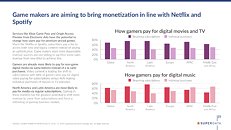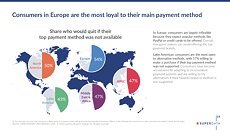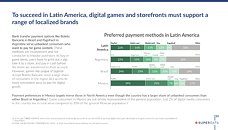Raevenlord
News Editor
- Joined
- Aug 12, 2016
- Messages
- 3,755 (1.22/day)
- Location
- Portugal
| System Name | The Ryzening |
|---|---|
| Processor | AMD Ryzen 9 5900X |
| Motherboard | MSI X570 MAG TOMAHAWK |
| Cooling | Lian Li Galahad 360mm AIO |
| Memory | 32 GB G.Skill Trident Z F4-3733 (4x 8 GB) |
| Video Card(s) | Gigabyte RTX 3070 Ti |
| Storage | Boot: Transcend MTE220S 2TB, Kintson A2000 1TB, Seagate Firewolf Pro 14 TB |
| Display(s) | Acer Nitro VG270UP (1440p 144 Hz IPS) |
| Case | Lian Li O11DX Dynamic White |
| Audio Device(s) | iFi Audio Zen DAC |
| Power Supply | Seasonic Focus+ 750 W |
| Mouse | Cooler Master Masterkeys Lite L |
| Keyboard | Cooler Master Masterkeys Lite L |
| Software | Windows 10 x64 |
The rhythms of our lives have been increasing non-stop as technology advances, and we're more and more unappreciative of any lost time. We try and do everything as efficiently as possible to be able to attend to the myriad of other issues we have to take on yet. "It is simply a matter of time", said Morpheus to Commander Lock in Matrix Reloaded. That wording is true in all manner of issues, whether in digital cyberpunk fantasy-land or in real life, where time is the ultimate judge. Ascending from these philosophical depths, though, there's a simple matter that actually does take issue with time: online orders.
SuperData, a market intelligence firm, has revealed a report where it's been found that over 27% of the gamer population has left online orders in limbo, never quite finishing them. The issue? Time and convoluted purchase processes, whether with multiple registration steps, email confirmation, a slew of obligatory data checks, shipping, payment options... Everything that isn't seamless makes gamers - and I'd say, people that aren't gamers as well - leave their orders unfinished.

There's obviously part of a "complicated" equation where the effort is just too much and takes away all the will to drive the process through. However, I'd argue there's something else at stake as well: the more time is wasted or taken with an online purchase process (or any kind of purchase process, for that matter) leaves open more time for the impulse buy factor to be mitigated by rationalization. "So, I'm wasting my time with this already" is a surefire way to open up thoughts of "do I really need this game with a backlog of 27,000 games that I already have?" I've been there, at least.

However, SuperData's analysis has focused more on the payment options part of the equation - and I've been there as well."One of the most-easily overlooked aspects of the digital games market, payment options are more vital to performance than publishers and platforms realize," said SuperData. "Offering the right mix of payment options for your platform, audience, and market is key in optimizing conversion and repeat payments." This is particularly important in Europe, where some 54% of would-be, almost-were buyers have left the checkout process without completing simply because the seller didn't provide their preferred payment option. The US comes close, at 50%, and Latin America comes in at third with 43% of abandoned carts.

Speed, ease of use - and of course, security - are the holy grails of consumer satisfaction and machine-like state of consumerism, where no stopgaps allow time for a concerted train of thought to be, well, stopped. PayPal being the preferred method, right after credit cards, isn't a coincidence. Things can hardly become easier than with PayPal's one-click buy and other such offerings. And isn't it great when we can auto-fill our credit card details dor an online order? (Don't do that, really. Don't take that risk).

It's true that convoluted checkout processes stop order fulfillment, and that wasted time is a big no-no for most people. However, there's something to be said about all of those unfinished orders, and there are some very many interesting questions left unanswered. How many of those unfinished sales on a given platform converted to a finished order in another, simpler, more streamlined one? How many of those purchase decisions were abandoned outright? What percentage of them were driven by impulse-buys and which were actual, thought-through purchase decisions that fell due to lack of trust in the available payment options?
It's an uber-fast world out there, and it's a "be faster or be left behind" world. Apparently, that does extend to everything - even to digital goods in a digital platform from the comfort of our own homes, chairs, or phones.
View at TechPowerUp Main Site
SuperData, a market intelligence firm, has revealed a report where it's been found that over 27% of the gamer population has left online orders in limbo, never quite finishing them. The issue? Time and convoluted purchase processes, whether with multiple registration steps, email confirmation, a slew of obligatory data checks, shipping, payment options... Everything that isn't seamless makes gamers - and I'd say, people that aren't gamers as well - leave their orders unfinished.

There's obviously part of a "complicated" equation where the effort is just too much and takes away all the will to drive the process through. However, I'd argue there's something else at stake as well: the more time is wasted or taken with an online purchase process (or any kind of purchase process, for that matter) leaves open more time for the impulse buy factor to be mitigated by rationalization. "So, I'm wasting my time with this already" is a surefire way to open up thoughts of "do I really need this game with a backlog of 27,000 games that I already have?" I've been there, at least.

However, SuperData's analysis has focused more on the payment options part of the equation - and I've been there as well."One of the most-easily overlooked aspects of the digital games market, payment options are more vital to performance than publishers and platforms realize," said SuperData. "Offering the right mix of payment options for your platform, audience, and market is key in optimizing conversion and repeat payments." This is particularly important in Europe, where some 54% of would-be, almost-were buyers have left the checkout process without completing simply because the seller didn't provide their preferred payment option. The US comes close, at 50%, and Latin America comes in at third with 43% of abandoned carts.

Speed, ease of use - and of course, security - are the holy grails of consumer satisfaction and machine-like state of consumerism, where no stopgaps allow time for a concerted train of thought to be, well, stopped. PayPal being the preferred method, right after credit cards, isn't a coincidence. Things can hardly become easier than with PayPal's one-click buy and other such offerings. And isn't it great when we can auto-fill our credit card details dor an online order? (Don't do that, really. Don't take that risk).

It's true that convoluted checkout processes stop order fulfillment, and that wasted time is a big no-no for most people. However, there's something to be said about all of those unfinished orders, and there are some very many interesting questions left unanswered. How many of those unfinished sales on a given platform converted to a finished order in another, simpler, more streamlined one? How many of those purchase decisions were abandoned outright? What percentage of them were driven by impulse-buys and which were actual, thought-through purchase decisions that fell due to lack of trust in the available payment options?
It's an uber-fast world out there, and it's a "be faster or be left behind" world. Apparently, that does extend to everything - even to digital goods in a digital platform from the comfort of our own homes, chairs, or phones.
View at TechPowerUp Main Site




 [/Rant]
[/Rant]

